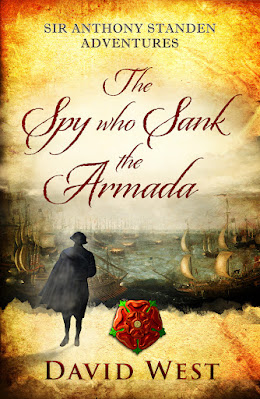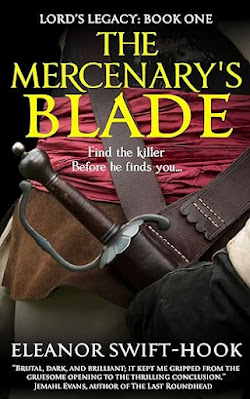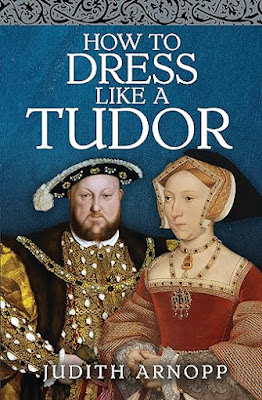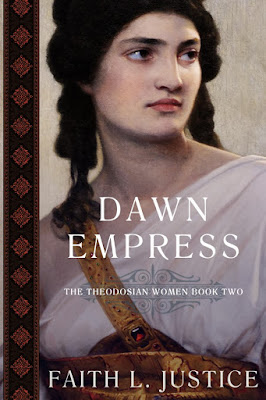James VI and I has long endured a mixed reputation. To many, he is the homosexual King, the inveterate witch-roaster, the smelly sovereign who never washed, the colourless man behind the authorised Bible bearing his name, the drooling fool whose speech could barely be understood. For too long, he has paled in comparison to his more celebrated – and analysed – Tudor and Stuart forebears. But who was he really? To what extent have myth, anecdote, and rumour obscured him?
Linda Porter admires a new biography of one of Britain’s most underrated kings
When James VI of Scotland rode out of Edinburgh in April, 1603, he was beginning a leisurely journey south to London, the capital of the English kingdom that he inherited from Elizabeth I. Much to the consternation of his English counsellors, he did not rush, preferring, instead to appraise his new realm for himself and to be seen by his new subjects en route. This Stuart characteristic would have endeared him to his grandfather and great-grandfather, James V and James IV of Scotland, who were both highly visible kings.
The English nobility, thrilled to have a male monarch after fifty years of female rule, flocked to him. Here was a king with a personable queen (he had been married to Anna of Denmark since 1589) and already two male heirs and an attractive daughter. The contrast with the barren Elizabeth could not have been more stark. James VI was now also James I of England, uniting in his person the two crowns of Scotland and England and beginning a new dynasty. It was always his intention to unite the two kingdoms under one system of government but that dream, like others that James would harbour, remained unfulfilled. It was eventually achieved by his great-grand-daughter, Queen Anne, more than a century later, and then not quite in the way James had intended.
Yet despite his dynastic importance, prodigious literary output and determination to follow a policy of peace abroad and a balance between the extremes of religious views at home, James is too often dismissed as ‘unpleasant ‘and generally ineffective, remembered for his public pawing of handsome male favourites, his swearing, his slobbering eating habits and inability to walk properly.
The latter two of these charges against him are roundly dismissed by Steven Veerapen as being baseless. Instead, he paints a fascinating picture of a flawed but highly intelligent man, the product of a lonely and dangerous childhood during his long minority in Scotland, where he was subjected to physical abuse by his austere Calvinist tutor, George Buchanan and had to endure terrifying attempts to kidnap him. He wasn’t even safe when he got to England, as evidenced by the attempt to blow him, his wife and elder son sky high in 1605. I often wonder, when enduring the annual mindless fireworks fest in early November, how many of those who happily petrify other people’s pets, have any idea of what lies behind this ‘celebration’, long overdue for oblivion.
Veerapen is especially good on James’s early years and his personal rule in Scotland. This is often hurried over in accounts of his reign, as if it is of little interest and importance in comparison with events after 1603. Yet it is, as this biography so eloquently points out, key to understanding the man he became. Put simply, James was always looking for love, both physical and emotional. His bisexuality, so often dismissed as a disgusting weakness by censorious commentators in the past, would not arouse criticism today and was less remarkable at the time, when sexuality was more fluid than is often supposed, as this book rightly reminds us.
Nor, as Veerapen acknowledges, do we really know what sexual acts, if any, James and his male lovers performed. It was common enough for men to share beds with men (and women with women) in the 16th and 17th centuries. And certainly at the beginning of his marriage to Anna, who was only fifteen at the time, James seems to have hoped that she would meet all his needs. Yet though the affection between them never waned, it did not become the passionate love or emotional support that James needed.
Anna emerges from these pages as a formidable woman, capable and determined, appalled by her husband’s decision to deprive her of the right to bring up her eldest son, Prince Henry, at Stirling, which had long been the dower castle of Scottish queens consort. Instead, James gave guardianship of the baby to the earl and countess of Mar, having been in the care of the Mar family himself as a child. A clever political player, Anna did not conform to her husband’s notions of the submissive wife.
He wouldn’t have wanted one that was simply empty-headed and decorative, but he viewed himself as head of a family, both personally and as monarch. Anna, carefully nurturing her own supporters on both sides of the religious divide, was not the woman to subjugate her own interests to James’s patriarchal views without a fight.
Veerapen takes issue with the suggestion that has been propounded for some time that Anna converted to Catholicism even before leaving Scotland. He points out that there is no real evidence for this and that Rome never acknowledged her as a daughter of the church. Instead, he leaves us with a compelling portrait of a queen consort who was so much more than a spendthrift on masques, furnishings and the other accoutrements of majesty.
Yet money – or the lack of it – would prove the most intractable aspect of James’s rule in both his kingdoms. He could never, ever, live within his means. Lavishing gifts on his favourites made him happy, even as it pushed him further into debt and emptied the national coffers. Not a ruler who was comfortable with asking Parliament for financial support, because he disliked the underlying assumption of dependency, which did not sit well with his views of kingship, he was, nevertheless, compelled to summon it when times got really tough. It is easy to see how the seeds of discontent, which had first sprouted in the 1590s, under Elizabeth, would swell into something much harder to contain when James died in 1625.
Was he deliberately poisoned by his favourite, Buckingham, with the connivance of the future Charles I? This sensationalist theory was put forward a few years ago but Veerapen convincingly argues against it. It was obvious that James was dying so what difference would a few days have made? It also runs counter to everything we know about Charles I, who may have had his faults, but patricide was not among them. By the time of James I’s death, he had lost both his elder son, Prince Henry and Queen Anna.
Princess Elizabeth, who had made a splendid marriage to the Elector Palatine and was briefly queen of Bohemia, was already in exile in the Netherlands, her husband’s unwise acceptance of the Bohemian throne leading to the Thirty Years War, in which many Scottish and English Calvinists fought against the Catholics. James could not help her, any more than he could achieve his policy of balancing Catholic and Protestant pressures on Britain by a Spanish marriage for Prince Charles.
Steven Veerapen has done a splendid job in bringing this neglected king and the extraordinary life he led so vividly to the page. Expertly researched and eminently readable, it should find a wide audience and will, I hope, remind those who profess to love history, that there is more to Britain’s past than the Tudors.
Linda Porter
# # #
About the Author

Linda Porter has a B.A. and a D.Phil from the University of York. She spent nearly ten years lecturing in New York, at Fordham and City Universities among others, before returning with her American husband and daughter to England, where she embarked on a complete change of career. For more than twenty years she worked as a senior public relations practitioner in BT, introducing a ground-breaking international public relations programme during the years of BT’s international expansion. The attractions of early retirement were too good to miss and she has gone back to historical writing as well as reviewing for the BBC History Magazine, The Literary Review and History Today.. Find out more at Linda’s website
http://lindaporter.net/ and follow Linda on Twitter
@DrLindaPorter1



































